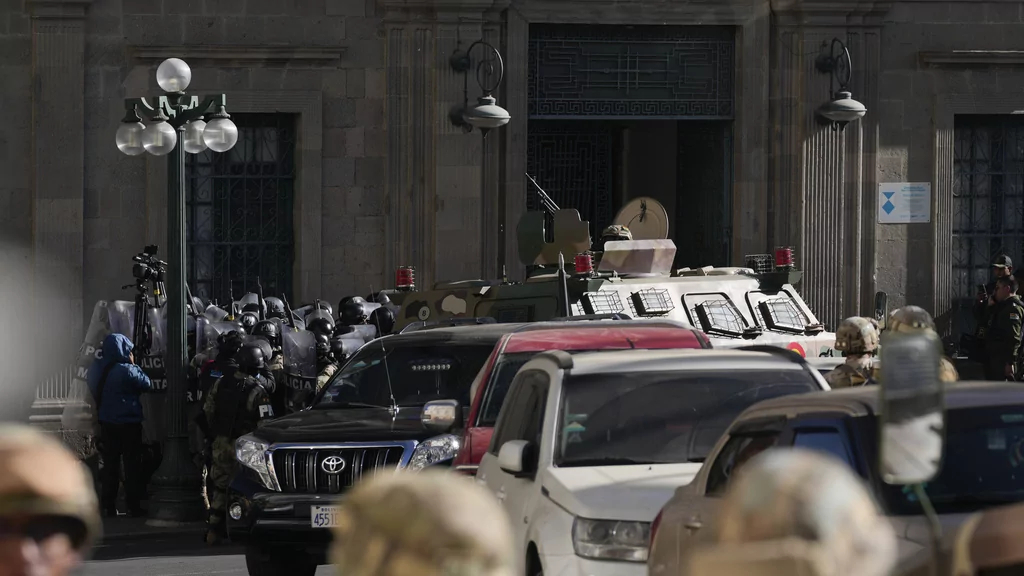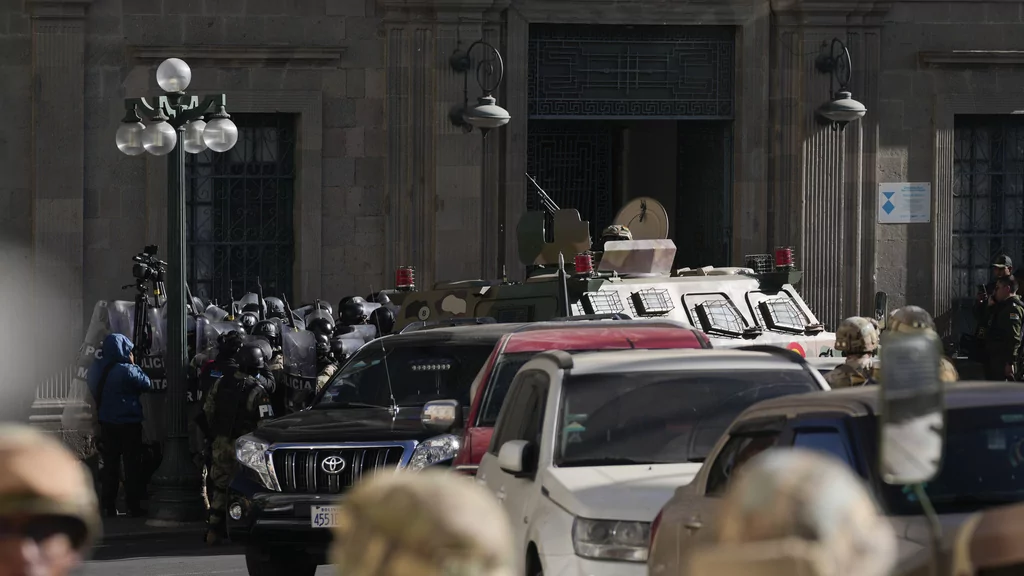
Bolivian armed forces launched an apparent coup to overthrow the socialist-run government, but it quickly faltered and sizzled out.
The coup attempt is the first in the South American country since 1984 and marks the latest of over 190 coup or revolution attempts since its independence in 1825. Bolivian soldiers under the command of the former head of the Bolivian army, Juan Jose Zuniga, announced on Wednesday afternoon that the army would take over government buildings and replace the government.

“We will take back our homeland. Our country can’t continue like this,” Zuniga told reporters from the Plaza Murillo in La Paz.
Footage showed an armored vehicle ramming open the gates of Bolivia’s Presidential Palace, the official residence of the president. Soldiers in riot gear then entered the building.

The alarm was first sounded about an hour before, when footage published on social media showed army units in combat and riot gear mobilizing in the streets, alongside armored vehicles.
Footage showed Bolivian President Luis Acre facing off and arguing directly with Zuniga, with Zuniga surrounded by soldiers and Acre surrounded by his ministers. Acre demanded that Zuniga withdraw his forces, which he refused.
Speaking with reporters, Zuniga said that it was the socialist government that was destroying democracy and that the military was going to save it.
He said that the Bolivian government was owned by a small group of elites, as explosions were heard in the background.
Zuniga pledged to “restructure democracy,” and pledged to free all “political prisoners.” He specifically referred to former right-wing President Jeanine Anez and her allies, who were arrested and sentenced to decades in prison after taking power during the 2019 political crisis that deposed former President Evo Morales.
In a recorded message, surrounded by ministers, Acre warned that the coup would mean the destruction of democracy in Bolivia.
“To the Bolivian people, and to the international community, the country today is facing an attempted coup d’etat. Today the country once again faces interests so that democracy in Bolivia is truncated. Here we are, the national government, with all its ministers firm with our vice president, firm here in Casa Grande to confront any coup attempt, any attempt that threatens our democracy,” he said.
Morales was quick to denounce the coup and called on his supporters to oppose the military.
“A Coup d’etat is brewing. At this time, personnel from the Armed Forces and tanks are deployed in Plaza Murillo,” he said in a post on X, adding that the Army General Staff had met in an emergency meeting right around when it began. “I call on the social movements of the countryside and the city to defend democracy.”
The Organization of American States, representing nearly all of North and South America, condemned the coup.
Zuniga pledged that he would create a new Cabinet.
“There will surely be a new Cabinet soon,” he told reporters. “There will be a new Cabinet. Ministers will be changed, but our state cannot continue like this, doing whatever it wants. We are showing our annoyance, it is our duty, our obligation that the Armed Forces recover this country again, enough of impoverishing the country and humiliating the army,” he said.
Acre got past the army and swore in new heads of the country’s army and air force in an impromptu ceremony. The new commanders told the soldiers involved in the coup to go home.
“Zuniga has been a good commander, and we ask him not to spill the blood of our soldiers,” the new commander of the Bolivian military, Jose Sanchez, said in his swearing-in ceremony.
The army listened to their new commander, with troops and armored vehicles withdrawing from their positions around the Presidential Palace. The entire saga lasted two hours.
Morales called for Zuniga to be criminally tried, along with his accomplices.
Zuniga was fired from his position as head of the army just one day prior to the coup after making disparaging remarks about Morales, who was deposed in 2019. Opponents of Morales claim he has been running the country from the shadows since, and the sentiment was expressed by Zuniga, leading to his firing.
The speed at which the coup was defeated led some within Acre’s Movement for Socialism Party to question whether it was an actual coup at all, or entirely orchestrated by Acre himself.
CLICK HERE TO READ MORE FROM THE WASHINGTON EXAMINER
“We do not know for sure what is happening. We consider Arce Catacora a traitor to the Movement for Socialism and to the country because he has decided to govern through decrees and judicial resolutions of a body that self-prorogated. It is a set of complex things,” MAS Political Secretary Oscar Alvarez said, Pagina 12 reported.
Since 1950, Bolivia has seen the most coups of any country in the world.









